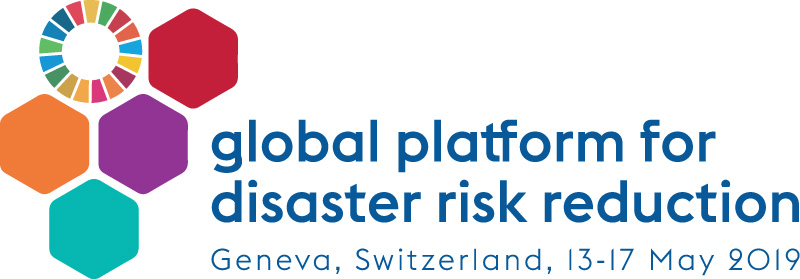Sasakawa Awards
Recognising the importance of inclusivity and sustainability in reducing disaster risk, the award ceremony for the biennial United Nations Sasakawa Award for Disaster Risk Reduction will take place at the GP2019. The ceremony will be followed by a reception.
Nominees
Here are the nominees of the 2019 Sasakawa Awards.
-
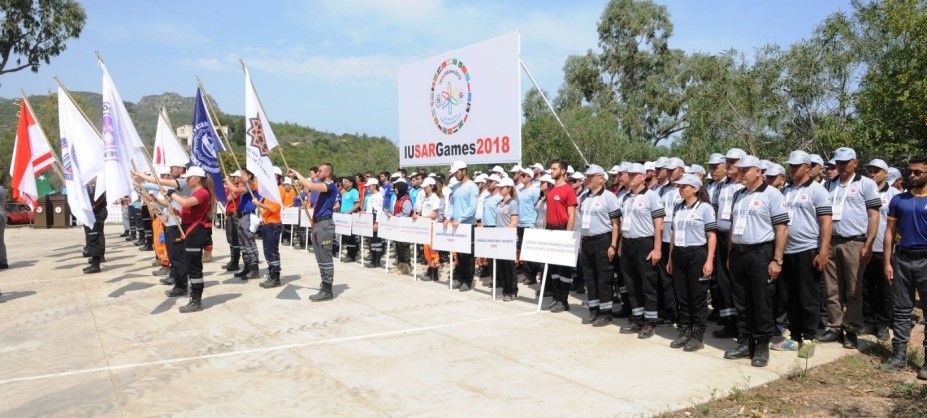
Universities Search and Rescue Games (USAR GAMES)
Nominee: The International Universities Search and Rescue Council (IUSARC)
Country: Turkish Republic of Northern Cyprus (TRNC)In 2016, the International Universities Search and Rescue Council (IUSARC) launched a new initiative called the “Universities Search and Rescue Games” in Republic of Cyprus. The “USARGAMES” is an international event where International university students from different countries come to Northern Cyprus to receive training on preparedness, emergency response and other disaster risk-related activities. University students acquire basic knowledge and expertise and, as agents of change, contribute to raising awareness in their own countries. This initiative is part of the training that IUSARC is providing to university students from all over the world to increase disaster risk reduction knowledge.
To know more about the initiative please contact Dr. Meen B. Poudyal Chhetri (meen.chhetri@yahoo.com)
-
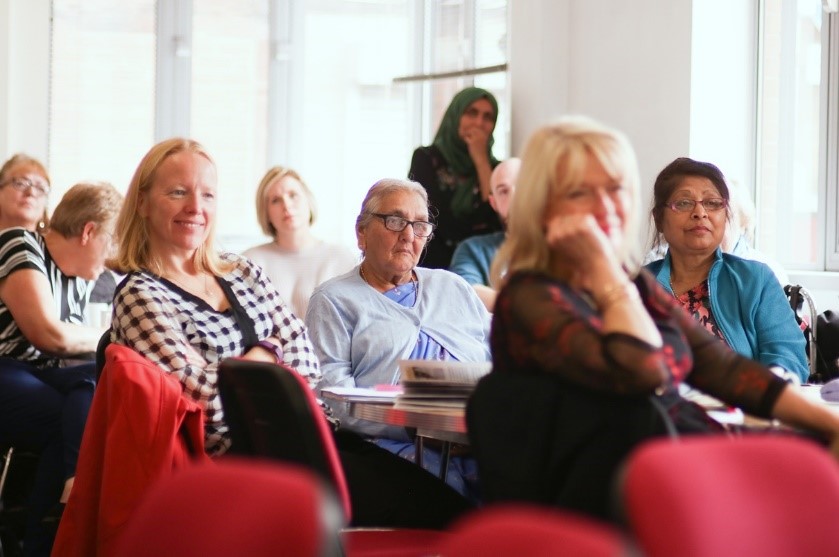
Ambition for Ageing
Nominee: Greater Manchester Centre for Voluntary Organization (GMCVO)
Country: Great BritainAmbition for Ageing is a Greater Manchester programme aimed at creating more age-friendly places and empowering people to live fulfilling lives as they age. Ambition for Ageing is part of Ageing Better, a programme set up by The National Lottery Community Fund, the largest funder of community activity in the UK led by GREATER Manchester Centre for Voluntary Organization (GMCVO).
Ageing Better aims to develop creative ways for older people to be actively involved in their local communities, helping to combat social isolation and loneliness. Led by GMCVO, the five-year programme is delivered by a cross-sector partnership with Local Delivery Leads (LDLs) leading on the work in 25 neighborhoods across eight local authorities in Greater Manchester.To know more about the initiative please contact Dr. Kathryn Oldham, OBE (k.oldham@manchester.gov.uk)
-
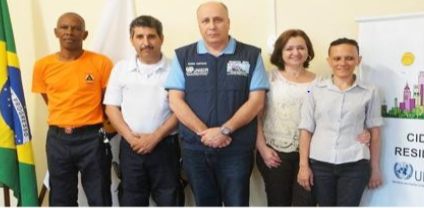
The Resilient City Committee
Nominee: Department of Civil Defense of Campinas
Country: BrazilIn 2003, Campinas, Brazil was hit by a severe storm resulting in significant human and economic losses. Following the event, the City Council decided to invest more in public policy strategies to reduce disaster risk. In 2012, Campinas joined the UNDRR Making Cities Resilient Campaign and in 2016 created the “Resilient City Committee” with the aim of fostering more disaster risk reduction actions and replicating the initiative in other cities. The project is carried out in areas prone to flooding and landslides, and involves local residents mapping out risk and identifying groups such as older persons, pregnant women, persons living with disabilities and children, who are most exposed to disasters. The project aims to reduce vulnerability and increase the resilience of communities. Campinas is Brazil’s 14th biggest city, with a population of 1.08 million. The city's metropolitan area of Greater Campinas contains 19 municipalities, with a total population of 2.83 million.
To know more about the initiative please contact Fernando Perez de Britto (defesacivil.resiliente@campinas.sp.gov.br, fernando@aisr.com.br)
-
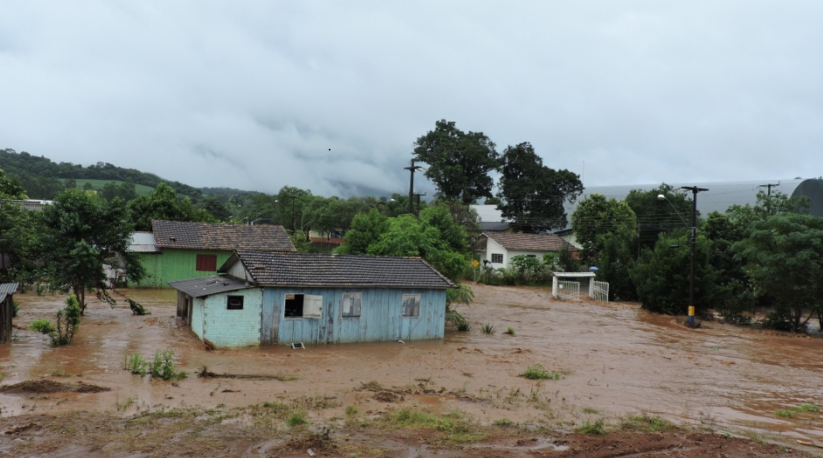
The Contingency Plan
Nominee: Bom Jesus do Sul City
Country: BrazilThe city of Bom Jesus do Sul in Brazil is located between two rivers that put the population at risk of regular flooding. Due to excessive rainfall and an overflowing dam that caused flooding in 2015, the Municipality developed a Contingency Plan. This Plan contained a set of guidelines to better protect the city. These have a focus on controlling and reducing the volume of water reaching the rivers as a result of high rainfall and dam overflow. Many prevention measures were put in place such as dredging and opening the channels, and the construction of slopes in the River Basin to contain the volume of water. The contingency plan also includes an alert system to evacuate the exposed population.
To know more about the initiative please contact Eriksen Mafra (eriksenmafra@gmail.com)
-
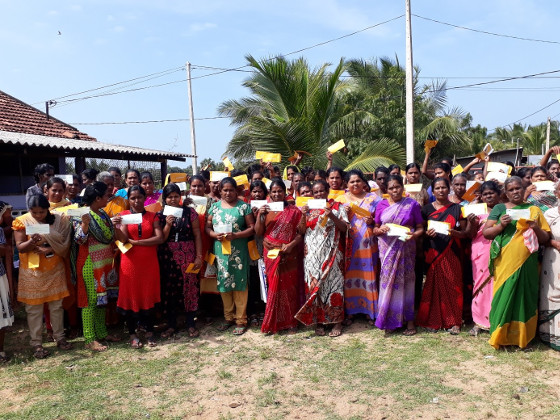
Sri Lanka Mangrove Conservation Program
Nominee: Seacology
Country: Sri LankaIn May 2015, Seacology launched the “Sri Lanka Mangrove Conservation Program” to make people of coastal communities more resilient to natural hazards. Protecting mangroves promotes food security, sustainable livelihoods, and a healthier environment. The primary goal of the five-year project is to make Sri Lanka the first nation in the world to preserve all of its mangrove forests. The program helped mitigate poverty in coastal communities by providing training and micro-loans to women and youth in exchange for their leadership in community mangrove conservation co-operatives (mangrove propagation, reforestation and protection). As a result, not only the restored mangrove forests protect communities against destructive storms, but also the beneficiaries of these training and micro-loans are able to create and expand their existing sustainable businesses and, therefore, increase economic and societal resilience.
To know more about the initiative please contact Nathanial Matthews (nmatthews@globalresiliencepartnership.org)
-
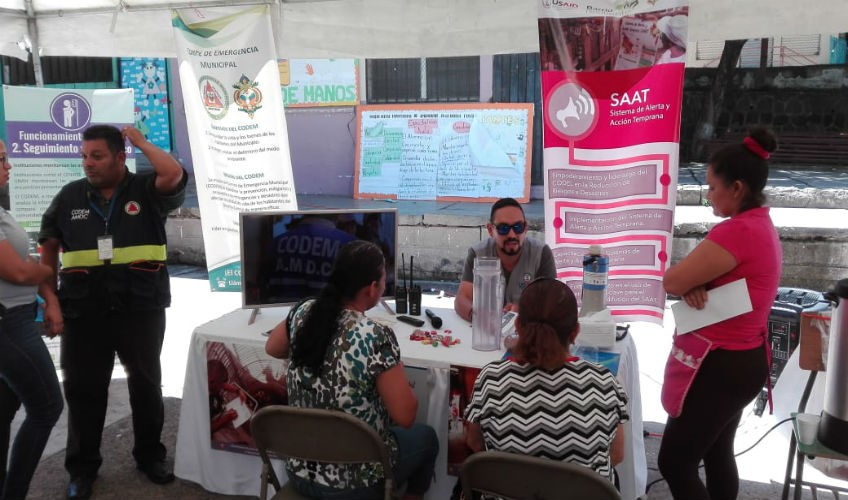
Resilient Neighborhood Approach / Barrio Resilient Approach
Nominee: Central District Mayor Office (Alcandía Municipal del Distrito Central) Tegucigalpa, Honduras
Country: HondurasThe Municipality of Tegucigalpa is considered the most vulnerable city to natural hazards in Honduras. With more than one million inhabitants living in informal settlements and suffering from a lack of access to basic infrastructures, Tegucigalpa is particularly vulnerable to flooding and landslides which cause huge losses every year. Since 2010, the Municipality of the Central District, in collaboration with other institutions, launched a joint initiative called “Barrios Resilientes” aimed at increasing resilience in high-risk neighborhoods with the active participation of women, children, youth, the elderly and persons with disabilities in disaster risk management and planning.
To know more about the initiative please contact Alejandro Borjas (aborjas@hn.goal.ie) , Rene Frenken (rfrenken@goal.ie)
-
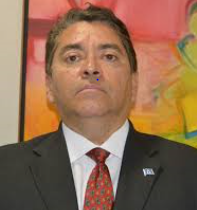
Disaster Risk Reduction and Emergency Planning
Nominee: Arturo Lopez Portillo Contreras, Director, Disaster Risk Reduction Association of Caribbean States (ACS)
Country: MexicoMr. Lopez-Portillo is the Director of Disaster Risk Reduction of the Association of Caribbean States, a regional organization that covers 25 country members and 10 Associate Members. His work has always been related to reducing the vulnerability of the Small Island Developing States (SIDS) which are highly exposed to natural hazards and climate change. He has been nominated for his contributions to increase disaster risk reduction knowledge transfer and disaster risk educational programmes. In 2001, he designed academic courses on disaster risk management at the University of West Indies, Mona Campus, Jamaica. He also wrote in 2007 the first tsunami emergency response plan for the Seychelles Islands and revised all UN cluster plans in Nepal in 2009 and 2010. His work has helped thousands of students to better understand disaster risk reduction issues.
To know more about the initiative please contact Arturo Lopez Portillo Contreras (lopezportillo@yahoo.com)
-
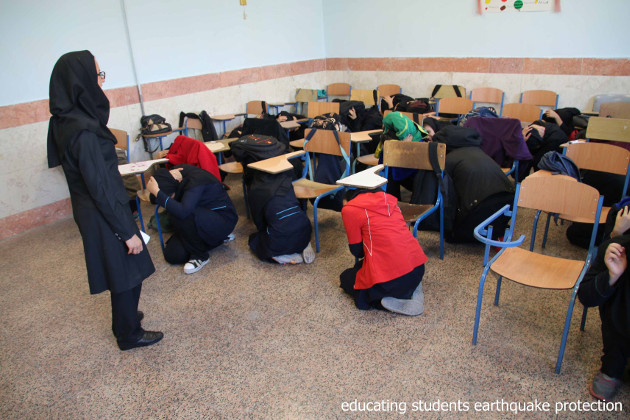
Safe Schools – Resilient Communities
Nominee: International Institute of Earthquake Engineering and Seismology (IIEES)
Country: Islamic Republic of IranSafe Schools - Resilient Communities is an Iranian community-based program established in 2015 to encourage and involve local residents in earthquake risk mitigation and management. The program has been performed in several schools in Tehran and many cities in Iran. Training courses were specially designed to better protect, evacuate, and prepare exposed communities. The interaction between students, school teams and local residents has considerably helped social cohesion and improved local capacity to deal with the negative impact of disasters.
To know more about the initiative please contact Kambod Amini Hosseini (kambodamini@yahoo.com)
-
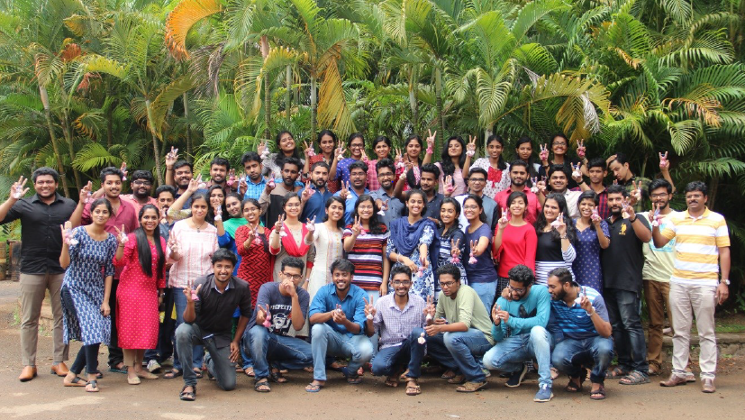
Rebuild Kerala; relief and rehabilitation
Nominee: Rajagiri College of Social Sciences
Country: IndiaIn 2018, severe floods affected the south Indian state of Kerala causing devastating losses in the Indian state. Rajagiri College of Social Sciences was among the first academic institutions to provide relief (rescue operations, relief camps, and psychological support) and rehabilitation (house construction, cleaning, electrical repairs and school rebuilding) to all people affected. After witnessing the Kerala floods in 2018, Rajagiri College of Social Sciences developed a Strategic Disaster Risk Reduction and Management Module that has further enhanced the preparedness of communities.
To know more about the initiative please contact T.P. Sreenivasan (tpsreenivasan@gmail.com)
-
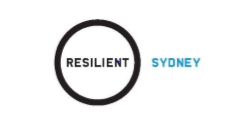
Global 100 Resilient Cities
Nominee: Resilient Sydney
Country: AustraliaThe population of Sydney is highly vulnerable to natural hazards including heatwaves, storms, flooding, bushfires and pandemics. Resilient Sydney carries out research and promotes inclusiveness, safer infrastructure and potential solutions to help people be more resilient to natural hazards. In July 2018, the “Resilient Sydney Strategy” which is a five-year project was launched with different stakeholders to make Sydney a connected, inclusive and resilient city. The project’s vision is to implement community-based actions for disaster risk mitigation in order to support local, vulnerable people to better anticipate and cope with natural hazards.
To know more about the initiative please contact Jacki Johnson (jacki.johnson@iag.com.au, AustralianBusinessRoundtable@iag.com.au)
-
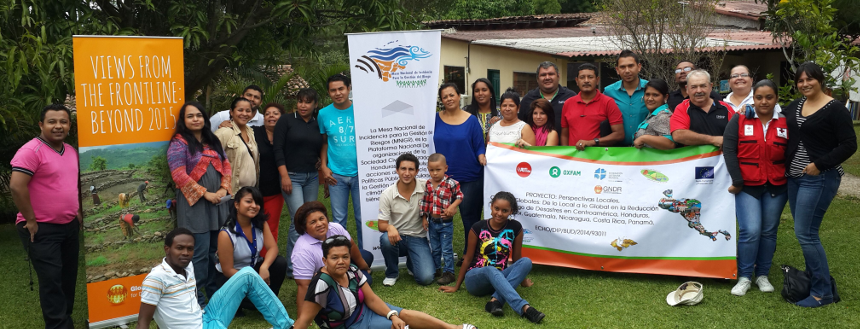
Views from the Frontline (VFL) - Community Consultations on Inclusive Risk Governance
Nominee: Global Network of Civil Society Organizations for Disaster Reduction (GNDR)
Country: United KingdomIn 2009, the Views from the Frontline (VFL) program was designed to integrate the most marginalized community groups in disaster resilience policies. The VFL program reached 750 of the poorest communities in 50 exposed countries and was mainly concerned with communities achieving an inclusive ‘people-centered’ approach to resilience. In addition, VFL also provides and monitors disaggregated data by gender, age, education, economic status, and disability to better understand and assess risks, and implement policies related to the seven targets of the Sendai Framework.
To know more about the initiative please contact Nicole Stolz (nstolz@caritas.ch)
-
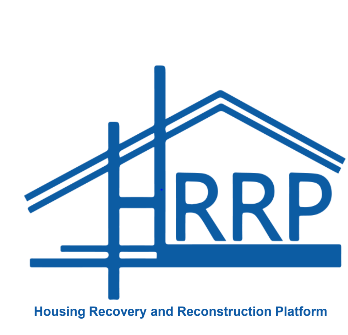
Municipal Revolving Fund to support earthquake affected households
Nominee: Aarughat Rural Municipality Gorkha
Country: NepalIn April 2015, Nepal was hit by an earthquake (also known as the Gorkha earthquake) destroying thousands of houses and critical infrastructure. As part of the reconstruction phase, the Aarguhat Rural Municipality developed a new initiative called “the revolving fund” which aims at supporting vulnerable households in housing reconstruction. This initiative is a financial tool where households have access to interest-free loans to rebuild their houses to seismic standards so that their properties will be less vulnerable when the next earthquake strikes.
To know more about the initiative please contact Minar Thapa Magar (minar@hrrpnepal.org)
-
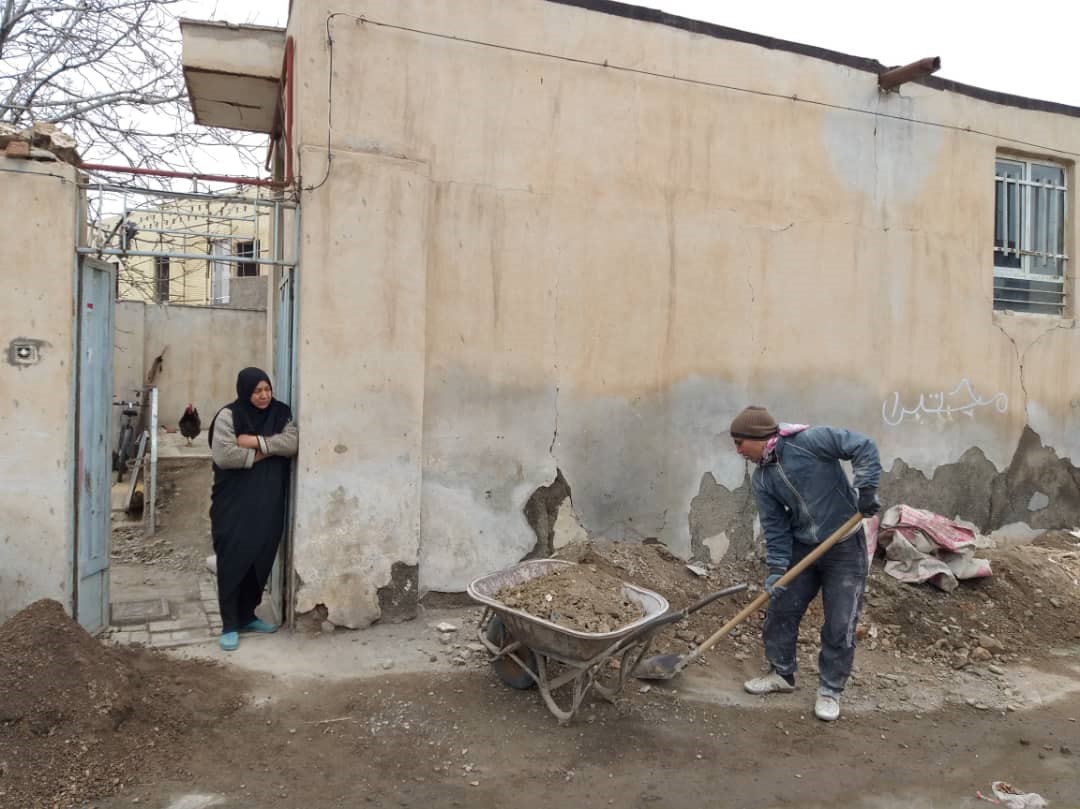
Resilient Urban & Rural Development
Nominee: Memarnet, Architecture and Urban Development
Country: Islamic Republic of IranIran is a country facing climate-related and socio-natural hazards forcing low-income households who are already vulnerable to disasters (children, women, older persons, people with disability, dependent people) to live in informal settlements in poorly built housing. Underlining the importance of infrastructure investment, Resilient Urban & Rural Development is an initiative to rebuild more disaster-resilient houses, in the areas of Zahidan and Neishabour, by integrating risk-sensitive planning and building codes.
To know more about the initiative please contact Soosan Momeni (soosan.momeni@gmail.com) , Ahmad Zeinaly (Ahmad.Zeinaly@gmail.com)
-
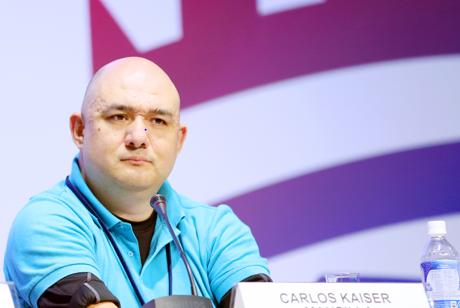
Inclusive Disaster and Disabilities Risk Reduction
Nominee: Carlos Kaiser, Executive Director of Inclusiva / Representative of the Disaster and Disability Risk Reduction Network for Latin America and the Caribbean (red GIRDD LAC)
Country: ChileMr. Kaiser is the main founder of the Disaster and Disability Risk Reduction Network for Latin America and the Caribbean and the Executive Director of the NGO Inclusiva. He has extensive experience in promoting community-based inclusive disaster risk reduction projects for children, women, men, youth, and older persons living with disabilities. He has developed many projects and conducted extensive research at regional, national and international levels and has unique expertise in integrating people with disabilities in disaster decision-making processes.
To know more about the initiative please contact Carlos Kaiser (kaiser.carlos@gmail.com)
-
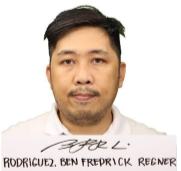
- Information Management in Preparation for Disasters Program (I. MPrepareD)
- The Simplified Guidebook on the Formulation of Family-Based Local Disaster Resilience Plan - A Comprehensive Guide for LGUsNominee: Ben Frederick Regner Rodriguez, President, Association of Local Disaster Risk Reduction and Management Officers (ALDRRMOS) of the Philippines, Inc
Country: PhilippinesFollowing Typhoon Haiyan in 2013, one of the most devastating typhoons to hit the Philippines, Ben Frederik Rodriguez designed an innovative program called “Information Management in Preparation for Disasters to better inform and prepare Filipino communities to cope with disasters”. “I.M Prepared” is a family disaster preparedness program with a strong focus on the most vulnerable groups such as children, the elderly, persons living with disabilities, the LGBT community, women and the most “invisible” people (homeless and street children).
To know more about the initiative please contact Ben Frederick R. Rodriguez (benfredrick@yahoo.com)
-
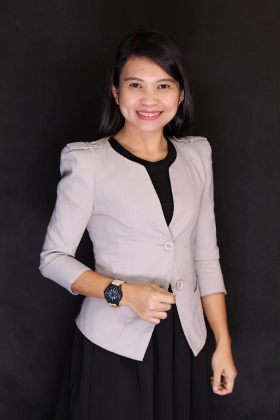
The Voice of Silence - Deaf people in DRR
Nominee: Deicy Silvia Wenas, Founder / Director of The Unspoken Ministry (TUM) Organization
Country: Republic of IndonesiaFollowing the many recent disasters that have hit Indonesia, Ms. Wenas who is the Director of the Unspoken Ministry Organization has developed a new inclusive program called “The Voice of Silence”. This is a programme that helps deaf people to be actively involved in disaster risk reduction activities. Her initiative was promoted at the Asian Ministerial Conference on Disaster Risk Reduction in 2018 in a side event “Silent Warning: the Inclusive DRR” where she introduced an innovative Early Warning System accessible to deaf people.
To know more about the initiative please contact Deicy Silvia Wenas (dswenas@gmail.com)
-
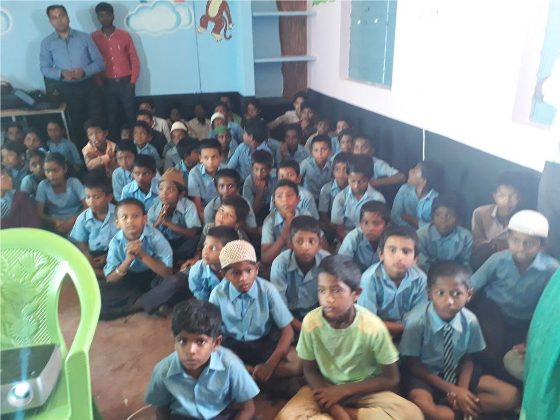
Ramnagara District (Karnataka State)
Nominee: Centre for Disaster Risk Reduction and Resilience (CFDRRR)
Country: IndiaIndia’s Karnataka State is exposed to multiple hazards (floods, earthquakes, droughts). The Centre for Disaster Risk Reduction and Resilience is a consultancy organization aimed at empowering every stakeholder with basic lifesaving skills to prevent an emergency from becoming a disaster. In collaboration with the District Administration, the Bidadi Industry Association and CFDRRR provide the Ramnagara District with training and workshops, and also provide other programs to multiple stakeholders including government officials, employees and children. CFDRR plans to cover 800 districts in India and 10,000 of the poorest schools in a period of 2 years.
To know more about the initiative please contact Erma Manoncourt (ewm@mandevconsulting.com) , Swati Mitra (swati.g.mitra@gmail.com)
-
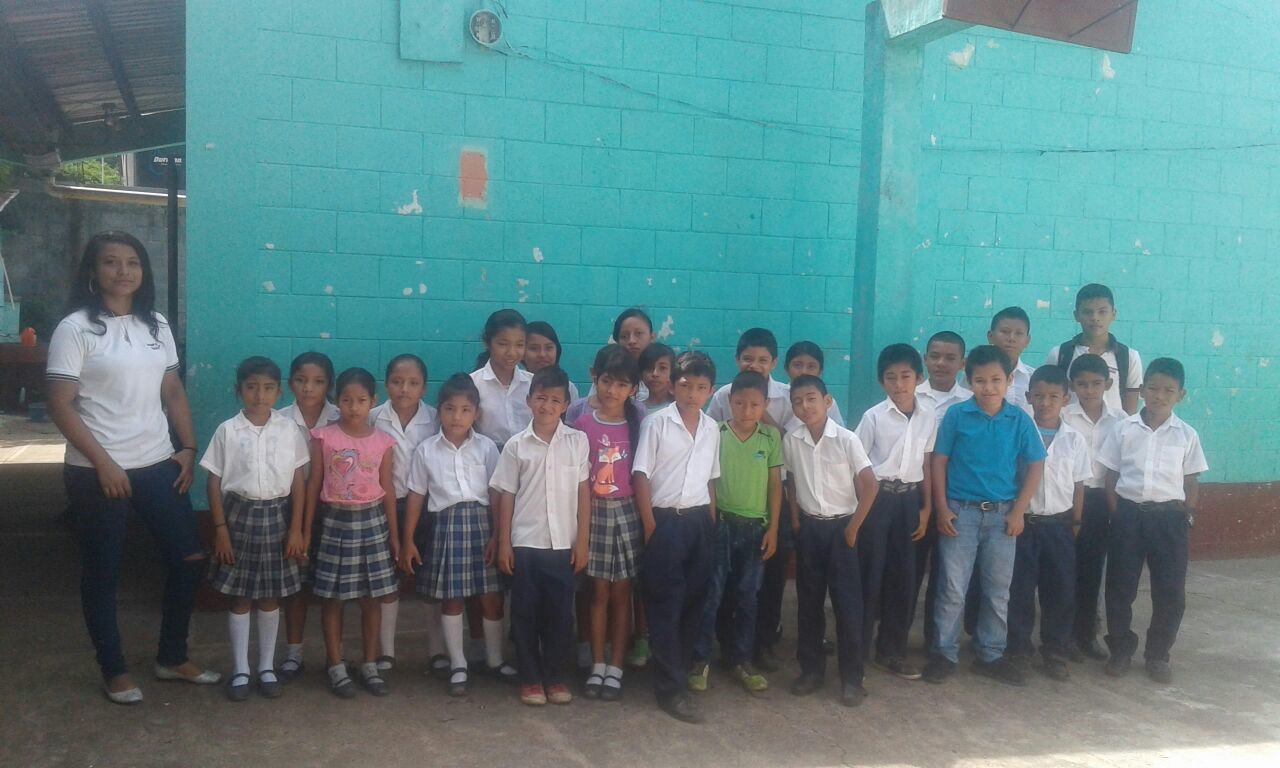
Youth Action on Developing Adaptation Plans for Tomorrow (Y- Adapt)
Nominee: Red Cross Red Crescent Climate Centre
Country: The NetherlandsY- Adapt is a successful education program consisting of a series of educational activities to help young people around the world to better understand climate change impacts and its linkages with disaster risk reduction. This program is an educational tool that aims to inspire young people to take action and to reduce climate risks in their own communities.
To know more about the initiative please contact Julia Barrott (julia.barrott@sei.org)
-
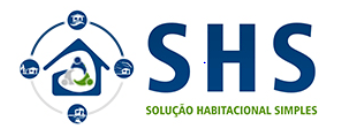
The simple housing solution (SHS): Re-Building after disasters and conflicts course
Nominee: Dr. Leandro Torres Di Gregorio, Permanent Professor at Federal University of Rio de Janeiro (UFRJ)
Country: BrazilSHS - SIMPLE HOUSING SOLUTION: RECONSTRUCTING AFTER DISASTERS AND CONFLICTS is a course developed in Brazil which offers a number of guidelines to facilitate the re-construction process of houses and basic infrastructures such as schools and health care facilities in a context of resource scarcity, post-disaster, post conflict recovery and resettlement of populations.
The course follows a community-based approach where the most vulnerable can be empowered and take part in their recovery.To know more about the initiative please contact Leandro Torres Di Gregorio (leandro.torres@poli.ufrj.br)
-
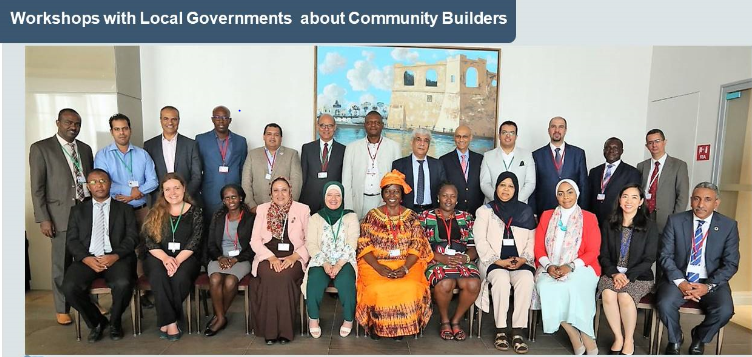
Community Builders
Nominee: Mohamed Ahmed Ali Mohammed Sabbah, CEO Global Geobits-Egypt Company
Country: EgyptThe "Community Builders" is a community based disaster risk initiative developed in Egypt to help the inhabitants of the city of Ismailia and its local governments to know more about their disaster risks and to encourage communities, in particular the most vulnerable groups, to be more involved in Disaster Risk Reduction related activities through trainings, workshops and knowledge transfer activities.
To know more about the initiative please contact Mohamed Sabbah (mohamed.sabbah7@gmail.com)
-
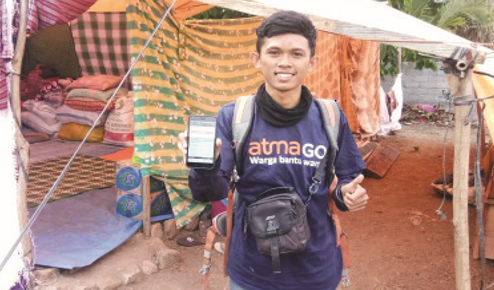
AtmaGo - Social Networking App for Mobile Phones
Nominee: Atma Connect
Country: Republic of IndonesiaThe AtmaGo is a mobile application that has reached nearly two million low-income households (youth, women and the elderly) in Indonesia. It allows users to be “actors” in disaster preparedness and recovery by sharing real time lifesaving information, disaster news and information and take collective action through events, workshops and community discussions.
To know more about the initiative please contact Meghann Rhynard-Geil (mrhynardgeil@mercycorps.org) , Natasha Mevs-Korff (natasha@atmaconnect.org)
-
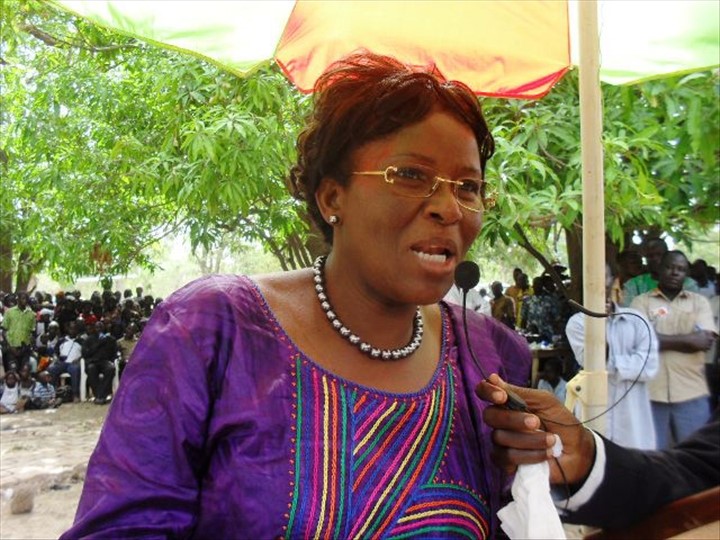
Communal Development Plan; Communes Koubri & Bakata Burkina Faso
Nominee: Marie Helene Bouda / Membre du Centre de la Gouvernance Forestière
Country: Burkina FasoThe Project is a Communal Development Plan set in in Burkina Faso in two main rural municipalities: Koubri and Bakata which are located in dry tropical zones prone to climate-related hazards.
The Communal Development Plan is an initiative to increase people’s economic and societal resilience in the face of climate change through improved management and conservation of ecosystems (ecosystem based adaptation approach). It integrates risk-sensitive planning to make agriculture more resilient to climate change, more efficient water supplies in rural areas, increased access to flooded villages, better early warning systems, and better hydrographic basin and community forest management.To know more about the initiative please contact Marie Helene Bouda (adelpa41@gmail.com)
-
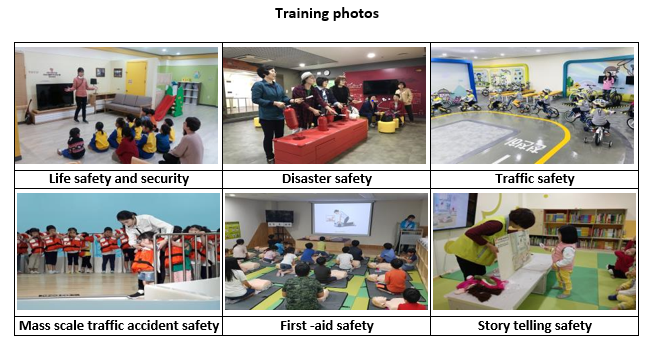
Songpa Safety Experience Center (ISAFETYSCHOOL)
Nominee: Songpa-gu Office, Seoul Metropolitan Government, Republic of Korea
Country: Republic of KoreaThe “Songpa Safety Experience Center” is a disaster safety education and training institute in the city of Songpa in Republic of Korea, focusing on children, women, disabled people, elderly, migrants, multicultural families and other marginalized groups and aiming at building more community resilience against disasters. In collaboration with other educational institutions and the civil society, the center proposes different projects and activities and serves as an experience-based comprehensive education facility where anyone can learn from a disaster response simulation exercise.
To know more about the initiative please contact Young-Jai Lee (ks6043@citizen.seoul.kr, yjlee@dongguk.edu)
-
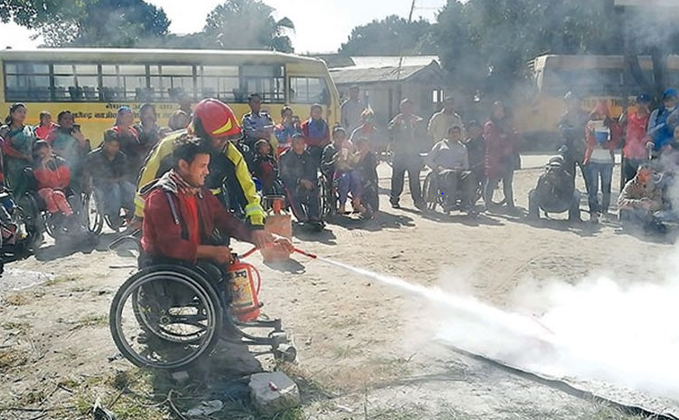
Fire Safety Programs in Nepal
Nominee: Pallav Pant / President of Sarokar Foundation
Country: NepalNepal is exposed to multiple hazards and fire is among the top-five risks. Nevertheless, fire-safety programs are rarely conducted in Nepal. Mr. Pallav Pant, president of the Sarokar Foundation (former Disability Media Foundation) was one of the first experts to promote greater accessibility and inclusion of persons with disabilities in fire prevention. His foundation launched programs like the “Fire Prevention Week”, the “Sensibilization of Fire Safety at Greenfield National College and Himalaya Boarding High School”, and the “Fire and Earthquake Safety Training in Budhanilkantha Municipality” which have been very successful programs. The Foundation is also recognized as the main online news portal in Nepal dedicated to news and information for persons living with disabilities.
To know more about the initiative please contact Pallav Pant (pal.love2040@gmail.com)
-
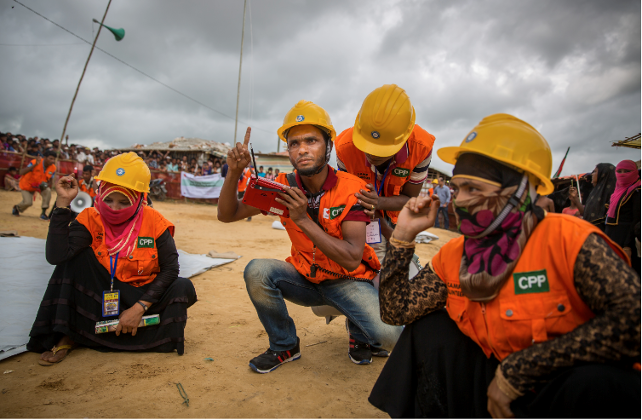
Cyclone Preparedness Program (CPP) of Bangladesh
Nominee: Cyclone Preparedness Program (CPP) of Bangladesh
Country: BangladeshThe Cyclone Preparedness Program (CPP) in Bangladesh is a joint initiative created in 2018 by the Ministry of Disaster Management and Relief (MoDMR) and the Bangladesh Red Crescent Society. The program covers almost one million residents across 34 refugee camps in Cox Bazar, an area particularly prone to cyclones and other hazards and includes over 3,000 volunteers who have been trained to better prepare the most marginalized and vulnerable groups in disaster situation such as displaced persons and refugees.
To know more about the initiative please contact Guillermo Garcia (guillermo.garcia@redcross.org) , Achala Navaratne (Achala.Navaratne@redcross.org)
-
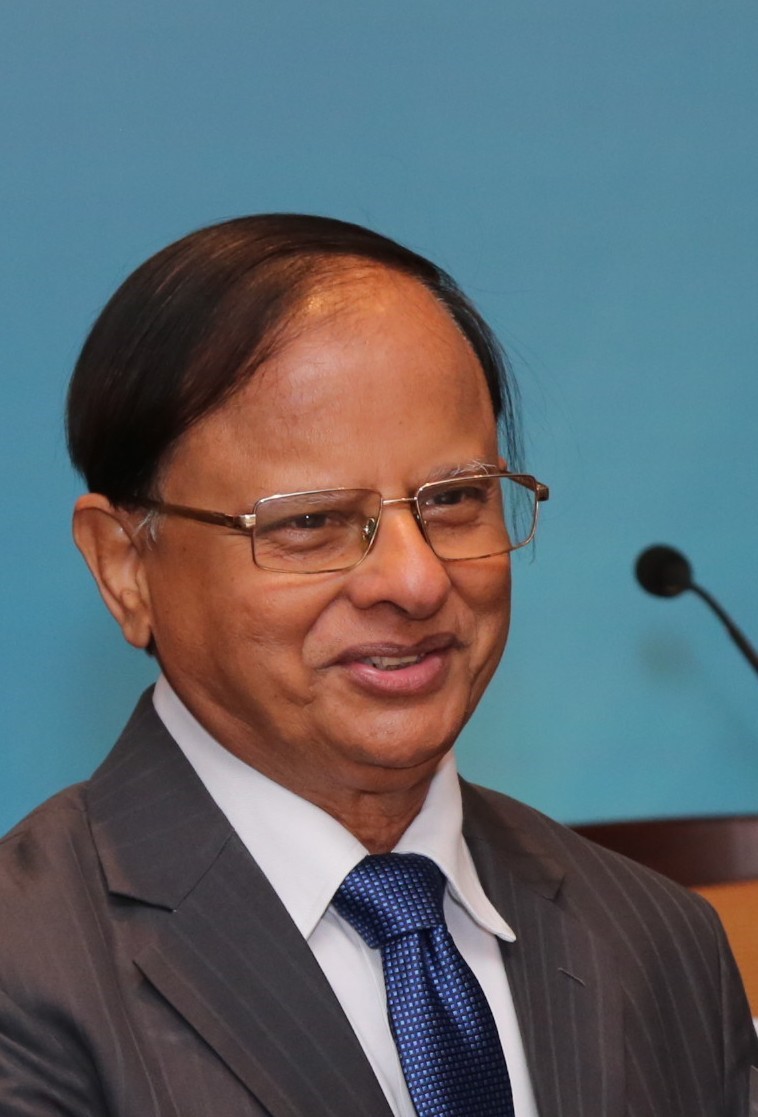
- Risk Transfer Mechanisms for Poor Farmers
- Post Disaster Recovery Social Inclusion
- Upstream Policy Work for Social Inclusion in Disaster Risk ManagementNominee: Dr. Pramod Kumar Mishra, Additional Principal Secretary to Prime Minister of India
Country: IndiaIndia is regularly affected by flooding which is causing enormous economic and human losses (loss of crops and livestock, loss of income and employment, hundreds of millions of deaths and persons affected). Dr. Pramod Mishra is a leading figure in India who has contributed significantly to improve the resilience of communities most exposed to flooding defending the notion of social inclusion to reduce inequality (gender, age, class, disability, occupational categories and economic status) and improve the safety net of the socially and economically marginalized. Among his many initiatives, Dr. Mishra has been instrumental in reducing and mitigating risks by designing and implementing effective crop insurance.
To know more about the initiative please contact Dr. Pramod Kumar Mishra (pkmgsdma@yahoo.com)
-
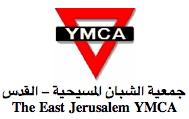
Community-Based Disaster Risk Reduction (CBDRR)
Nominee: East Jerusalem YMCA [EJ-YMCA]
Country: IsraëlThe “Community Based Disaster Risk Reduction (CBDRR) program and its “Supporting Community Led Response (Sclr), EJ-YMCA is based in East Jerusalem and seeks to ensure that emergency response is fully community led. Volunteers from the community organize themselves into “self-help groups” to identify their own community’s needs (food, shelter, water) and provide a holistic approach to manage disaster risk and crisis response at local and community level. The program includes initiatives already tested in more than 20 communities in the West Bank like the “Participatory Vulnerability Capacity Assessment (PVCA)” which engages all community societal groups to assess risks and vulnerabilities, and propose “Community Cash Grants” to financial help communities to monitor own small-scale projects.
To know more about the initiative please contact Isaiah Kipyegon Toroitich (Isaiah.Toroitich@actalliance.org, ikt@actalliance.org)
-
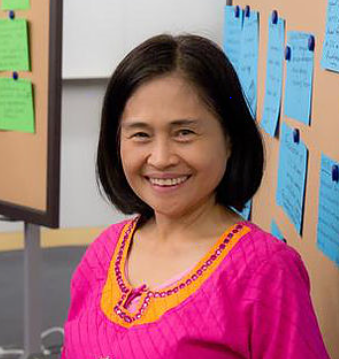
The Center for Disaster Preparedness (CDP) and Community Based DRR
Nominee: Zenaida Delica-Willison, President of Center for Disaster Preparedness
Country: PhilippinesMs. Delica-Willison has over 40 years of experience in development and disaster risk reduction practices in the Philippines and in other Asian countries. In 1999, Zenaica Delica co-founded the Center for Disaster Preparedness (CDP) and organized the “Philippines Disaster Reduction Network” to advocate for DRRM policies and legislative reforms. Under her leadership, CDP has developed Basic Instructors’ Guide to train local government units (LGUs) in Indonesia on community-based disaster planning, implementation, monitoring and evaluation. She also developed the project “South-South Citizenry-Based Development Academy” where community members and the civil society shared lessons learned and best practices.
To know more about the initiative please contact Zenaida Delica-Willison (zenaidawillison@gmail.com)
-
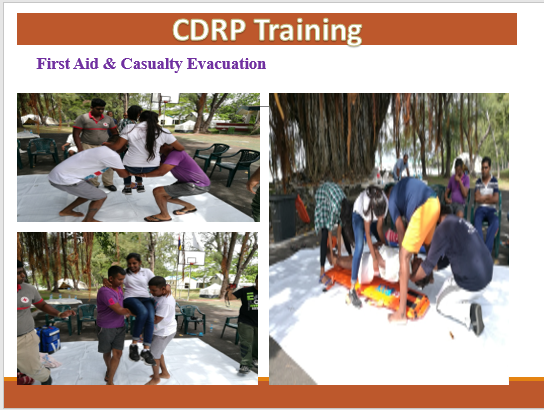
The Community Disaster Response Program (CDRP)
Nominee: National Disaster Risk Reduction and Management Centre (NDRRMC)
Country: Republic of MauritiusThe Republic of Mauritius is a small island development state (SIDS) exposed to multiple climate-related and man – induced hazards. Implemented by the National Disaster Risk Reduction and Management Centre (NDRRMC), the Community Disaster Response Program (CDRP) trains community members who are particularly vulnerable people to hazards to better respond and anticipate events. CDRP also established a Vulnerability and Capacity Assessment (VCA) Map and Contingency Plan with disaggregated data on children, women, young, elderly and disabled amongst others which help communities to better identify and anticipate risk.
To know more about the initiative please contact Mr. Nazir Soobratty (disaster@govmu.org, nsoobratty@govmu.org)
-
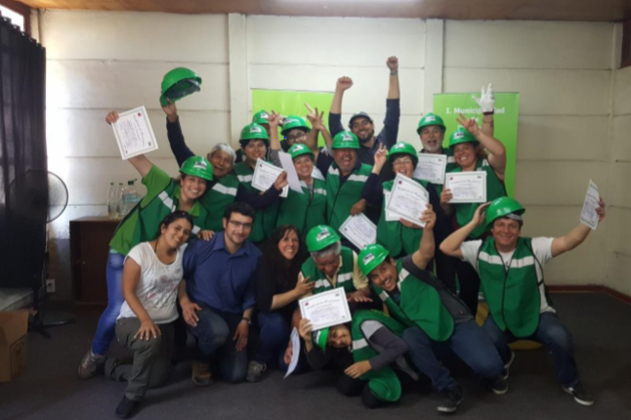
Inclusive Disaster Risk Management
Nominee: Municipality of Pudahuel
Country: ChileChile is exposed to multiple hazards, both climate-related and geophysical. The country has a long history of massive earthquakes, including one of the largest in 2017.
The program developed in the Municipality of Pudahuel provides training and awareness to the most vulnerable communities (older persons, persons living with disabilities, women and children as well as other family members and networks) on natural and human-induced risks, emergency preparedness and evacuation. The aim of the initiative is to integrate the most vulnerable communities at the local level in planning, adaptation and response. The program proposes also a database to identify multiple hazards and assess community risk perception in the Municipality rural areas.To know more about the initiative please contact Ricardo Toro Tassara (rtoro@onemi.gov.cl) , Natalia Andrea (nsilvab@onemi.gov.cl)
-
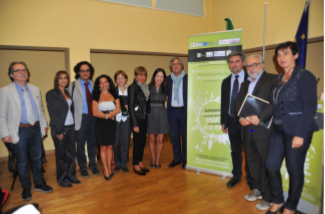
WeResilientStrategy
Nominee: PROVINCE OF POTENZA
Country: ItalyProvince of Potenza is composed of 100 small-sized Municipalities exposed to natural and man-induced hazards. WeResilientStrategy is an initiative created by the Province of Potenza to pursue community based actions to promote inclusive resilience across the provincial territory by combining environmental sustainability, territorial safety and climate change policies. It aims at promoting participatory governance by engaging key civil society members and local residents to develop and implement effective prevention measures. The initiative works with civil society major groups (older persons, women, persons living with disabilities, farmers, migrants and ethnic minorities, children and youth, social volunteers groups and associations, Civil protection volunteers groups) and proposes solutions and processes to increase cooperation between municipalities.
To know more about the initiative please contact Ms. Carla Tavares (gab.presidencia@cm-amadora.pt)
-

Team Österreich-app
Nominee: Austrian Red Cross
Country: AustriaThe application Team Österreich-app was created in Austria after a major flood in 2002. It enables the population to be self-sufficient and resilient to reduce disaster impacts and provides the opportunity for micro-volunteering to assist the most vulnerable. The application is based on a database whose functionality is not limited to times of disasters, but to all situations that need special actions. It acts as a disaster warning system accessible to anybody who has a smart phone.
To know more about the initiative please contact Dr. Michael Staudinger (direktion@zamg.ac.at, michael.staudinger@zamg.ac.at)
-
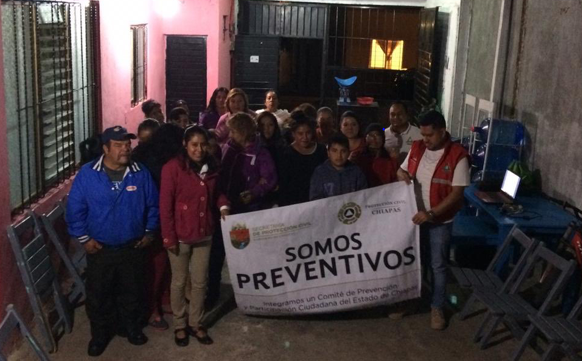
Resilient Schools
Nominee: Secretaría de Protección del Estado de Chiapas
Country: MexicoThe State of Chiapas is one of the poorest states in Mexico highly exposed to seismic hazards. For more than 10 years, the Civil Protection in the State of Chiapas has been promoting the Integral Risk Management of Disasters Models focusing on inclusive social participation and territorial governance. “Resilient Schools” objective is to strengthen the organizational structure and functionality of schools by increasing awareness of children, their parents and teachers on multiple hazards (natural and man-made), mainstreaming risk management in the education system and making school facilities safer.
To know more about the initiative please contact Antonio Molpeceres (antonio.molpeceres@one.un.org) , Xavier Moya (xavier.moya@undp.org)
-
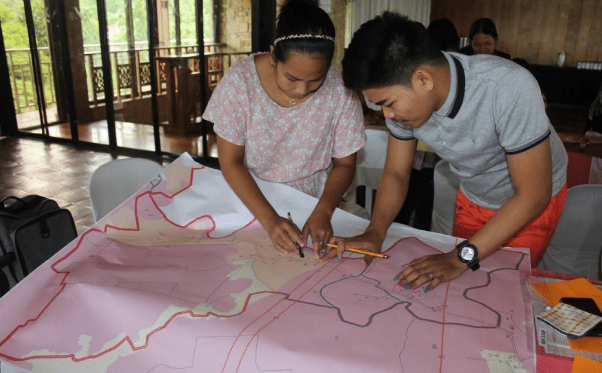
Carigara Hazard Mapping Project
Nominee: The Municipality of Carigara
Country: PhilippinesIn the aftermath of Typhoon Haiyan in 2013, the Municipality of Carigara in the Philippines mobilized significant resources to increase investments in disaster risk reduction. The Carigara Hazard Mapping Project aims to apply an integrated approach engaging community members in co-creating DRR solutions. The project consists of creating a hazard mapping tool that integrates buildings, businesses, paths and roads and waterways and household disaggregated data which is shared and understood by all the residents in the Municipality.
To know more about the initiative please contact Aaron Opdyke (aaron.opdyke@sydney.edu.au)
-
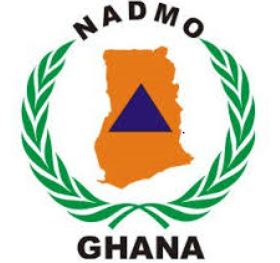
Catch Them Young
Nominee: The National Disaster Management Organization (NADMO)
Country: GhanaGhana is a high risk profile country where children and youth are strongly affected by natural and human-induced hazards. “Catch them Young” is a program to empower young people and children in disaster risk reduction planning, decision-making and risk management and to bring effective change in the entire community. The focus group for this intervention is school children, children in the orphanages, street children (homeless children), and children with disabilities. The program includes training for capacity building, logistics for the street children, mobile applications, equipment and policy reviews and formulations.
To know more about the initiative please contact Louis Kuukpen (louis.kuukpen@undp.org)
-
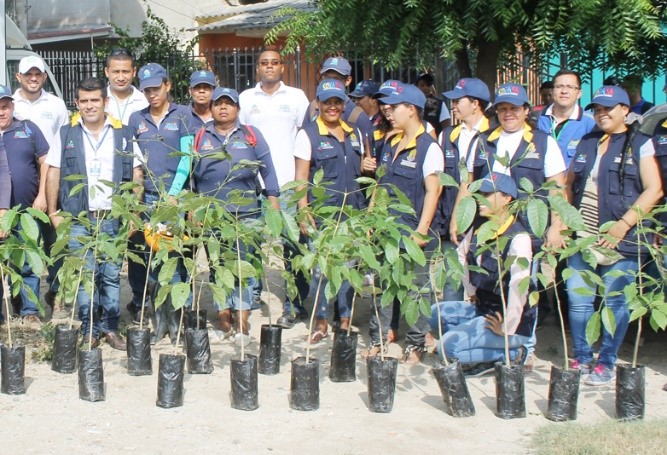
Comité Barriales Samarios - Project for Risk Reduction (COBASA)
Nominee: Office for Risk Management and Climate Change (OGRICC)
Country: ColombiaSanta Marta is a region prone to multiple hazards in Colombia. Comité Barriales Samarios (Cobasa) is a community-based risk reduction committee created by the Office for Risk Management and Climate Change (OGRICC) to empower the most vulnerable communities to better cope with disasters. Committees rely mostly on volunteers who are trained in environmental protection, adaptation to climate change and risk management and act as first responders when disasters happen. Cobasa includes 421 volunteers who are operating in 21 urban and rural communities in the city of Santa Marta.
To know more about the initiative please contact Esneyder Andrés Pallares Becerra (EsneyderCS@hotmail.com)
-
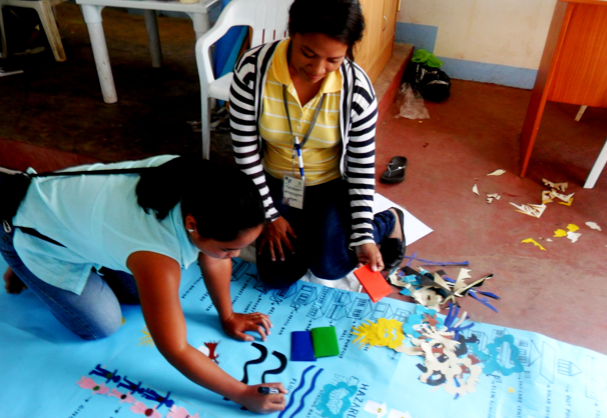
Participatory Disaster Risk Assessment (PDRA)
Nominee: NASSA, Caritas Philippines
Country: PhilippinesThe Participatory Disaster Risk Assessment (PDRA) is a Philippines initiative designed to enable communities to carry-out their own assessment on hazards and vulnerability and be equipped with response mechanisms. The project aims at developing a digitized community-risk map as a means to share and communicate more efficiently information about potential risks and vulnerabilities.
To know more about the initiative please contact Takeshi Komino (takeshikomino@gmail.com) , Ikue Uchida (i.uchida@cwsjapan.org)
-
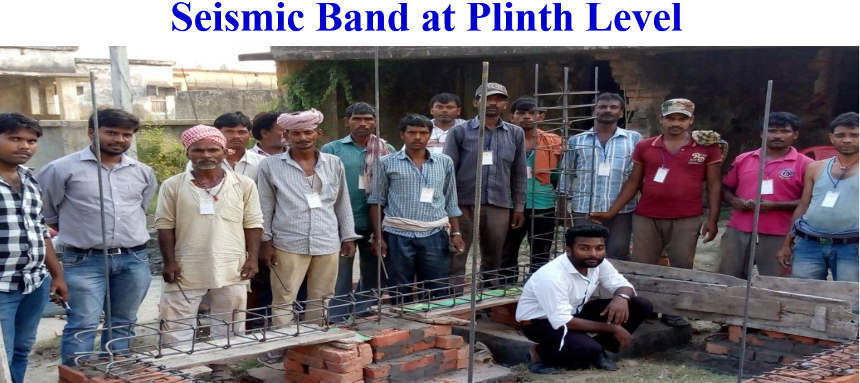
Preparedness, Rehabilitation, Research, Capacity Building and Rising Awareness
Nominee: Dr. Sunil Kumar Chaudhary, Advisor (Technical)/Bihar State Disaster Management Authority, Patna(Bihar)
Country: IndiaDr. Chaudhary is a technical advisor in the Bihar State Disaster Management Authority, Patna(Bihar) in India involved in mitigation, preparedness and post disaster rehabilitation programs.
He has promoted many projects to build more resilient infrastructures against earthquakes, cyclones and floods; worked to increase disaster risk reduction public education and awareness through social media and community mobilization, provided technical research and implemented many initiatives to increase the capacity building of many communities highly exposed to hazards.To know more about the initiative please contact Dr. Sunil Kumar Chaudhary (sunil228@cimp.ac.in)
-
Satellite Technologies, Innovative and Smart Financing for Food Security (SATISFy)
Nominee: Apurba Shee, Calum Turvey and Liangzhi, International Food Policy Research Institute
Country: KenyaSatellite Technologies Innovative and Smart Financing for Food Security (SATISFy), is a market-based innovative risk management solution developed in Kenya and a social safety net that mitigates drought risks and improves farm productivity and livelihoods in poor rural areas. RCC is a financial tool that gives insurance protection which, when triggered, offsets loan payments due to the lender. The project has already benefited over 1,200 farming households in Machakos county, Kenya.
To know more about the initiative please contact Liangzhi (l.you@cgiar.org)
-
Solve X38 Project: Intelligent Flood Warning and Monitoring System
Nominee: Jonathan Cartilla, High School Teacher
Country: PhilippinesSolve X38 is an intelligent flood warning and monitoring system implemented in Poblacion 1, Carcar City in the Philippines exposed to floods, fire and typhoon. By using a public address broadcast system and/or by texting messages to all subscribers, the tool provides the community with real time information and instructions in local dialect that help residents to better anticipate and react when disasters happen.
To know more about the initiative please contact Jonathan Cartilla (jojocartilla@gmail.com, jonathan.cartilla@deped.gov.ph)
-
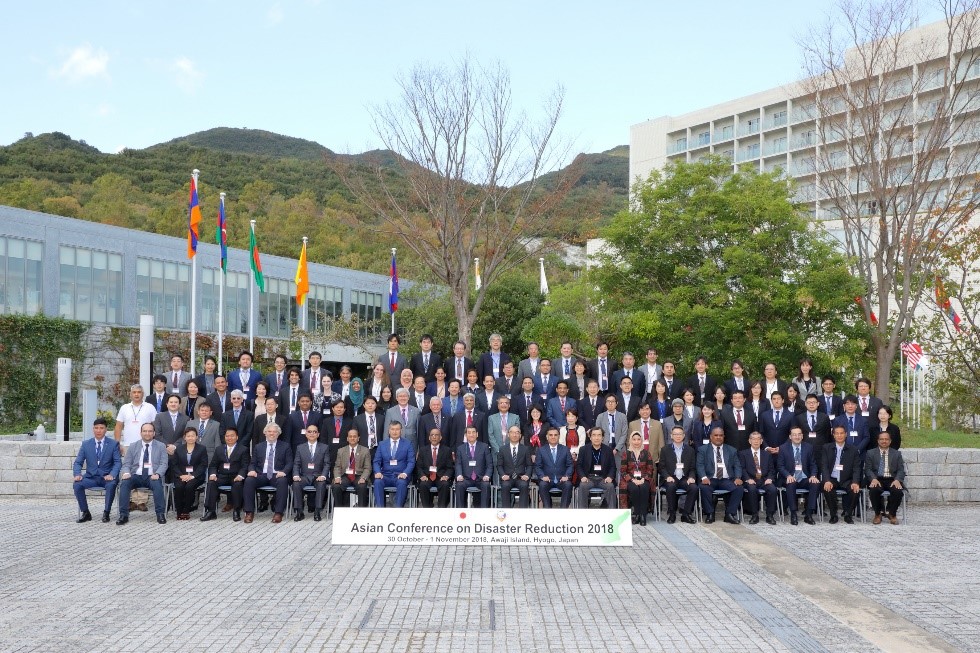
Usage of drones; joint initiative CESDRR & UNICEF
Nominee: Center for Emergency Situations and Disaster Risk Reduction (CESDRR)
Country: KazakhstanThe Center for Emergency Situations and Disaster Risk Reduction (CESDRR) was established in 2016 with the strong support of Kazakhstan and Kyrgyzstan to help countries in Central Asia to mitigate risks as many are very prone to earthquakes, floods, drought, landslides and avalanches. The CESDRR is an international organization that promotes regional coordination, fosters long term cooperation and shares practice and knowledge on disaster risk reduction policies through regional forums, discussions, training and capacity building activities. In 2019, the Center started a new joint initiative with UNICEF to use drones to be more efficient in protecting the most vulnerable people from disasters.
To know more about the initiative please contact Mr. Abdurahim Muhidow (muhidov@un.org)
-
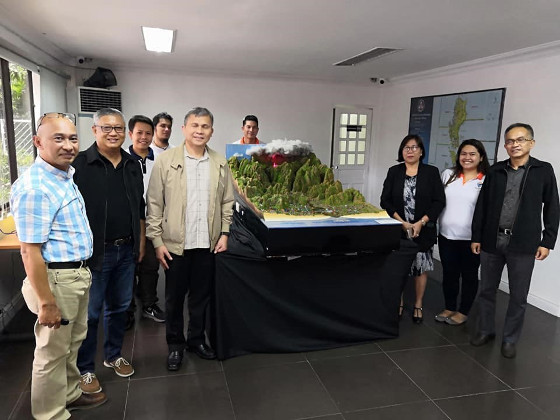
ZAMBASULTA and ADZU ALeRTO Early Warning System
Nominee: ADZU GeoSAFER Mindanao, Ateneo de Zamboanga University Geo-SAFER Mindanao Zambasulta
Country: PhilippinesAfter the devastating floods that struck the Philippines in 2017 and 2018, ADZU GeoSAFER developed new detailed flood hazard maps and early warning systems to better inform the populations at risk and provide them with real-time information on potential flooding risks. The “ALeRTO Early Warning System” uses different hydro-meteorological sensors to provide real-time status of hydro-meteorological hazards in high-risk areas to local government units (LGUs), and empowers them to develop their local action plans.
To know more about the initiative please contact Kristine Mae Sarita (kristinemaesarita27@gmail.com) , Martin A Wee (mawee65@yahoo.com)
-
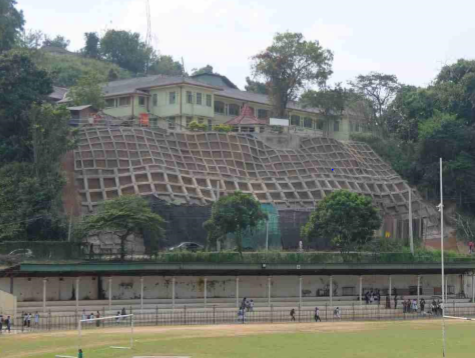
Technical Cooperation for Landslide Risk Mitigation Project (TCLMP)-Phase I
Nominee: National Building Research Organization (NBRO)
Country: Sri LankaThe Technical Cooperation Landslide Mitigation Project (TCLMP) is a DRR joint initiative established in 2014 between the Government of Japan through the Japan International Cooperation Agency (JICA) and the Government of Sri Lanka through The National Building Research Organization (NBRO). It aims at providing financial and technical assistance to reduce landslide risk. Under this initiative, mitigation measures were designed and implemented successfully in four major landslides in Nuwara Eliya, Matale, Badulla and Kandy districts.
Landslides are a frequent natural hazard in the central highlands of Sri Lanka, which cause damage to property, physical facilities and infrastructure.To know more about the initiative please contact Mr. J. J. Ratnasiri (secretarymdm2015@gmail.com)
-

Nominee: Global Bank Disaster Risk Reduction and Reconstruction Fund (GBDRRRF)
Country: USAGlobal Bank Disaster Risk Reduction and Reconstruction Fund (GBDRRRF) is an umbrella trust fund established in 2017 with the purpose of mainstreaming climate change into development to help achieve the seven Sendai Framework targets. It is a multi-donor partnership and grant-making financing mechanism created to reduce natural and human-induced hazards and increase international and regional cooperation to build more resilience in developed and developing countries. The trust fund helps countries to integrate disaster risk management and climate change adaptation into development strategies, policies and investment programs.
To know more about the initiative please contact Jing Wang (lisa.wang@eurorient.com)
-
Nominee: The Global Bank Group (GBG)
Country: USAThe Global Bank Group (GBG) consists of five institutions including The Bank for International Development and Reconstruction. Its primary mission is to promote global economic and social development and to support the implementation of Global Agendas. The GBG provides financing, risk management products and other financial services as well as a pool of knowledge in development-related disciplines.
To know more about the initiative please contact Jing Wang (lisa.wang@eurorient.com)
-
The Global Bank Infrastructure Project Preparation Facility (GBIPPF)
Nominee: The Global Bank (A.K.A Bank for International Development and Reconstruction)
Country: USAThe Bank for International Development and Reconstruction is a specialized agency founded in 2013 to help developing countries achieve economic and social development by financing public sector “bankable” infrastructure projects. The support provided to the projects includes feasibility and engineering studies, environmental impact assessments, structured financing plans, legal analyses and financial transaction plans. The Global Bank has now launched the Global Bank Infrastructure Project Preparation Facility (GBIPPF) to further provide access to more infrastructure projects in the energy, transport, telecommunications and urban sectors.
To know more about the initiative please contact Jing Wang (lisa.wang@eurorient.com)
-
Hamadan Resiliency Program (HRP)
Nominee: Hamadan Municipality - Department for Urban Disaster Risk Management
Country: Islamic Republic of IranEstablished in 2014, the Hamadan Resiliency Program (HRP) has been one of the most successful initiatives to provide the Iranian City of Hamadan with the best shelter and emergency settlement after disasters. Currently, the programme has a capacity of 56,946 places and is expecting to increase to 73,949 places by 2024.
The Hamadan Disaster Management Department also provides disaster management activities with a primarly focus on risk identification and assessment.To know more about the initiative please contact Mr. Reza Bathaee (reza_bathaee@yahoo.com)
-
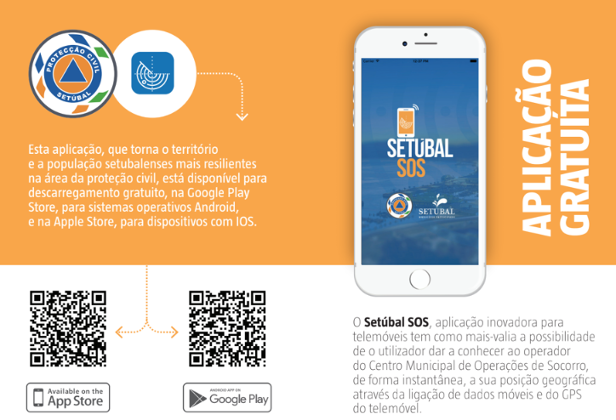
Our Neighborhood, Our City (ONOC)
Nominee: Câmara Municipal de Setúbal
Country: PortugalSetúbal is a municipality in Portugal exposed to multiple hazards. In 2014, a community capacity program called "Our Neighborhood, Our City (ONOC)" was developed to better protect poor communities who are most vulnerable to hazards. The program adopts a multi-hazard approach to mitigate and prevent risks by promoting and increasing the participation of the most vulnerable populations in disaster risk reduction solutions. The program includes a Mobile App Setúbal SOS (Android and IOS) and a twitter account (@SetubalSOS), that provide daily information about hazards to all residents, and a monthly newsletter aid better preparedness.
To know more about the initiative please contact Nuno Miguel de Sousa (nuno.sousa@mun-setubal.pt) , José Oliveira (jose.oliveira@prociv.pt)
-
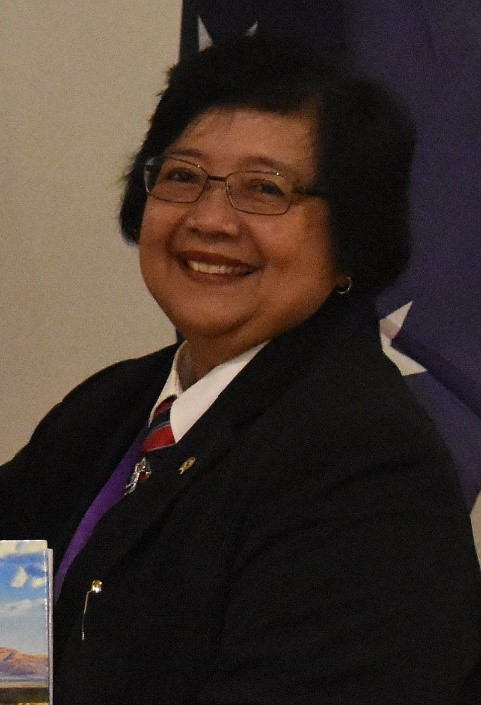
The Integrated Prevention Patrol
Nominee: Dr. Siti Nurbaya Bakar M. Sc. Minister of Environment and Forestry
Country: Republic of IndonesiaAppointed in October 2014, as Minister for Environment and Forestry of Indonesia, Dr. Siti Nurbaya Bakar is well recognized in her country for her considerable actions to reduce fire risk and protect the most vulnerable groups exposed to wildfires such as women, the young, the elderly and dependent people. Among her many actions, she launched the" Integrated Prevention Patrol" which involves key actors at local level to reduce wildfire. Her actions have considerably improved awareness and contributed to a better dialogue with practitioners and experts who are in charge of reducing wildfire risks.
To know more about the initiative please contact Dr. Ir. Siti Nurbaya Bakar (Sitinurbaya_bakar@yahoo.com)
-
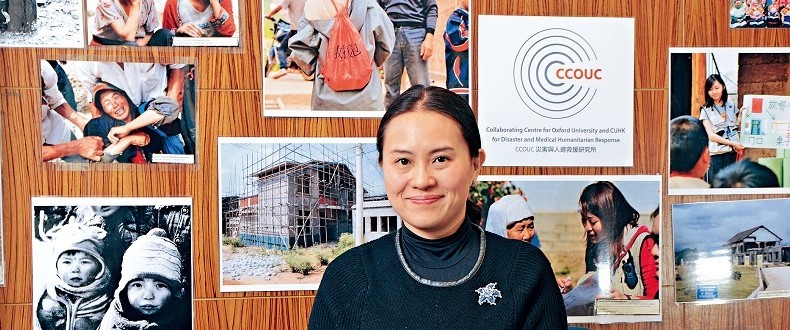
DRR Education, Research and Knowledge Transfer
Nominee: Emily Ying Yang Chan, Assistant Dean and Professor Faculty of Medicine CUHK and Director, Collaborating Centre for Oxford University and CUHK for Disaster and Medical Humanitarian Response
Country: Hong Kong, ChinaProfessor Emily Chan is in charge of multiple initiatives that promote education, research and knowledge transfer in Hong Kong, China and Asia to reduce disaster risk with a particular focus on the most vulnerable groups exposed to hazards.
She led the Medical Humanitarian Response 's Ethnic Minority Health Project in 2009 which focused on how poor disaster-prone ethnic minority villages in rural China were dealing with health issues in disaster situations. Professor Chan and her team are also involved in many other projects to mainstream health in disaster risk reduction policies.To know more about the initiative please contact Professor Emily Ying Yang Chan (emily.chan@cuhk.edu.hk)
-
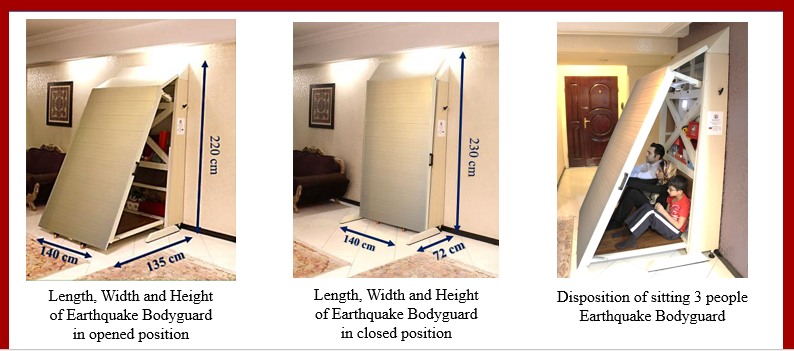
Earthquake Shelter Bodyguard
Nominee: Arash Amin, Founder and CEO of Zelzele Azma Ye Shahr
Country: Islamic Republic of IranThe province of Kermanshah is a region prone to geophysical hazards in Iran. Mr. Arash Amin is an earthquake expert who designed an innovative earthquake simulation called “The Earthquake Bodyguard" which is able to provide immediate shelter when an earthquake strikes. The tool is equipped with a special locking system sensitive to surface earthquake P and S waves which opens automatically as soon as the earthquake strikes and provides shelter with survival equipment. Mr. Arash Amin has also contributed to building a culture of prevention by organizing awareness courses for more than 900 residents. These have a special focus on children.
To know more about the initiative please contact Arash Amin (eqazma@gmail.com)
-

Tacloban City, Philippines
Nominee: One Architecture & Urbanism (ONE)
Country: PhilippinesOne Architecture & Urbanism (ONE) is a private design and planning firm in the Philippines that develops proposals and solutions for effective risk governance and local economic development activities based on environmental solutions (mangrove, coastal greenbelt and riverine restoration). The initiative also provides knowledge transfer platforms that facilitate collaboration between agencies, stakeholders, and vulnerable communities in order to reduce climate risks.
To know more about the initiative please contact Dr. Nathanial Matthews (nmatthews@globalresiliencepartnership.org)
-
Disability and Disasters: Empowering People and Building Resilience
Nominee: University of Sydney
Country: AustraliaSince 2015, the University of Sydney has led an initiative called “Disability and Disasters: Empowering people and building resilience” which is composed of a team of specialists, practitioners, and persons with disabilities (PWDs). The team collaboratively identify needs of the disabled community, and work on disability inclusive DRR (DiDRR) in Southeast Asia, one of the regions most affected by global disasters. With a focus on Thailand, Cambodia and The Philippines, the initiative provides an institutional platform and social support to persons with disabilities, and empowers them to become agents of change within their communities.
To know more about the initiative please contact Dr. Nathanial Matthews (nmatthews@globalresiliencepartnership.org)
-
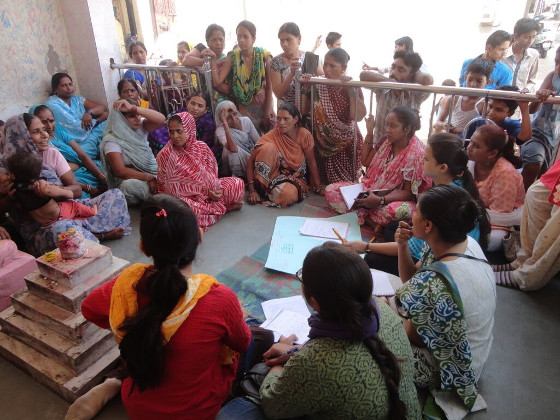
Devising Local Coping Mechanisms and Adaptation Technologies to Build Climate Resilience Capacity of Urban Poor in South East Asia
Nominee: Mahila Housing SEWA Trust
Country: IndiaSouth East Asia is recognized as having some of the world’s most densely populated cities. More than 40 % of its population live in informal settlements and hazardous living conditions.
Mahila Housing SEWA Trust (MHT)’s is an Indian initiative that has the main mission of empowering women from poor communities. The program focuses on habitat development and climate change resilience and provides training with the aim of encouraging poor women to participate in policies and programmes. From 2015 to 2017, more than 27,000 families across 100 slum communities benefited from the programme in seven South Asian cities: Bangladesh (Dhaka), India (Ahmedabad, Jaipur, Bhopal, Ranchi, and Bhubaneswar) and Nepal (Kathmandu).To know more about the initiative please contact Dr. Nathanial Matthews (nmatthews@globalresiliencepartnership.org)
-
Resilient Housing and Schools Worldwide
Nominee: Build Change
Country: USAMaintaining physical infrastructure is critical for communities to cope with the impact of hazards. Build Change is an initiative created in 2004 that has largely contributed to influencing post-disaster reconstruction policies and pre-disaster social housing policies in many countries such as Nepal, Indonesia, Colombia, Guatemala and Haiti. Their main aim is to deliver resilient and sustainable housing to the most vulnerable populations exposed to natural hazards. Through this initiative, homeowners receive cash subsidies or a housing loan on the condition that they will build their house according to building resistant standards.
To know more about the initiative please contact Papadopoulos Aris (arisp@titan.gr)
-
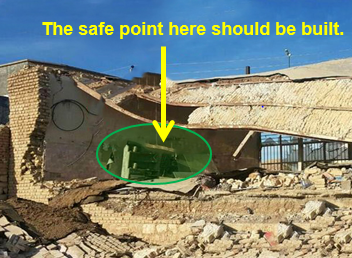
Each home, a safe point against the earthquake! How to create a Safe Seismic Point?
Nominee: Morteza Bastami (Dr.) / Associate Professor
Country: Islamic Republic of IranThe “Safe Seismic Point” project is an Iranian initiative to reduce seismic risk in a country very exposed to seismic activities. The initiative highlights that every house/building has a safe point which is relatively more stable and resilient, and can resist an earthquake. The initiative proposes to identify the “safe spots” of buildings and to retrofit them so families can be safer and better protected against earthquakes.
To know more about the initiative please contact Dr. Morteza Bastami (m.bastami@iiees.ac.ir)
-
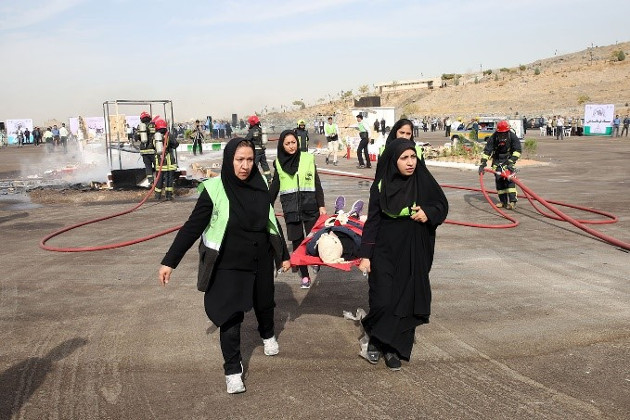
Mashhad Rescue Angels
Nominee: Mashhad Municipality Disaster Management Department
Country: Islamic Republic of IranMashhad in Iran is a city very exposed to earthquakes. “Rescue Angels” is an initiative created in 2016 composed of volunteers aged 18 to 55 who have been trained to help people living in the city to better respond to disasters. Today there are more than 8,000 “Rescue Angels” volunteers who are deployed in all neighborhoods of the city, and are able to evacuate the most vulnerable groups to safer shelters.
To know more about the initiative please contact Mr. Reza Bathaee (reza_bathaee@yahoo.com)
-
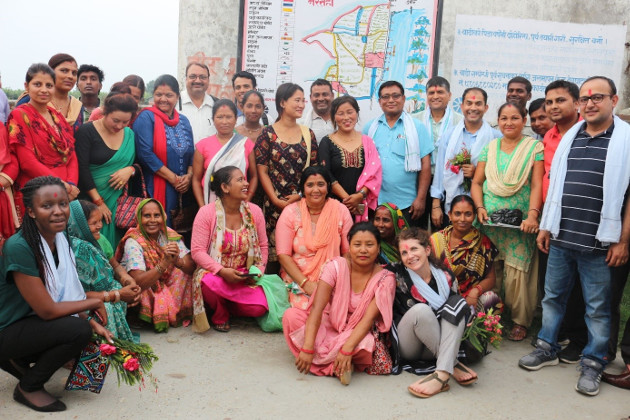
Nepal-India Transboundary Resilience (TBR)
Nominee: Lutheran World Relief
Country: USAThe Transboundary Resilience (TBR) Consortium, led by Lutheran World Relief, is a Nepalese-Indian community-based initiative launched in 2013 to increase the resilience of populations exposed to flooding in the Gandak/Narayani and Koshi river basins located between Nepal and India.
The project has already benefitted more than 83,000 people. It has established more effective early warning communications and has facilitated greater access to financial services and insurance safety nets to prevent agricultural losses. Every year, floods affect more than 156,600 people in Nepal and a further 10.5 million people in India.To know more about the initiative please contact Dr. Nathanial Matthews (nmatthews@globalresiliencepartnership.org)
-
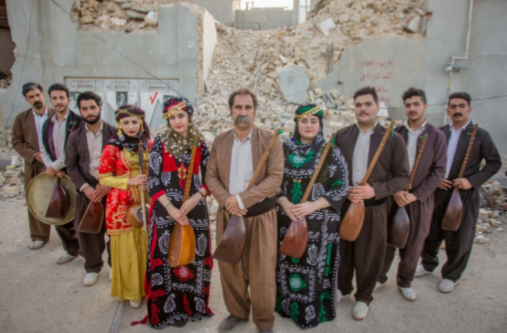
Combating Earthquake Post-Traumatic Stress Disorder (PTSD) with Music in Kermanshah Region/West of Iran
Nominee: Shaho Dalaho Music Group
Country: Islamic Republic of IranIn November 2017, an earthquake struck the western Iranian province of Kermanshah causing devastating losses. Shaho Dalahoo is a music group that helps victims of earthquakes to cope with post-traumatic stress disorder (PTSD) through cultural activities, music lessons and training.
To know more about the initiative please contact Mr. Reza Bathaee (reza_bathaee@yahoo.com)
-
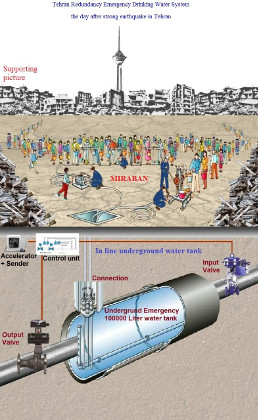
Tehran Redundancy Emergency Drinking Water System
Nominee: District 2 of Tehran Province Water and Wastewater Company of Tehran (TPWWC)
Country: Islamic Republic of IranTehran will be hit by an earthquake in the future that will cause a lot of damage to infrastructure. The “Tehran Redundancy Emergency Drinking Water System” is a prevention initiative which anticipates the scarcity of drinking water if an earthquake were to strike.
The project has identified water tank capacities, trained volunteer groups in water management, identified vulnerable groups and customized a water distribution application (Miraban application) that will be able to distribute water to citizens affected by earthquakes.To know more about the initiative please contact Reza Bathaee (reza_bathaee@yahoo.com)
-
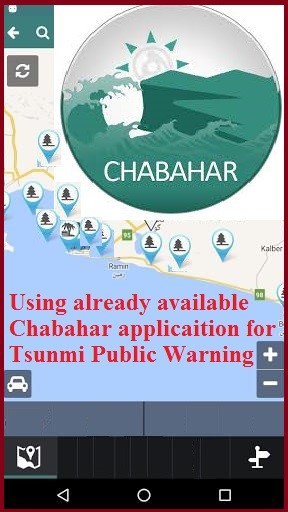
Reducing Tsunami Damage and Human Losses Through the Monitoring of the Makran Fault and Indian Ocean Tsunami
Nominee: Municipality of Chabahar City and Port - I.R. of Iran
Country: Islamic Republic of IranThe Chabahar City and Port in Iran are located in the Makran Fault zone prone to floods, storms, earthquakes and tsunamis. The initiative is to create a permanent and more effective warning monitoring system by using available tsunami warning signals from the Indian and Omar Monitor Center, and by upgrading their existing multi-use and multi-language public warning application.
To know more about the initiative please contact Reza Bathaee (reza_bathaee@yahoo.com)
